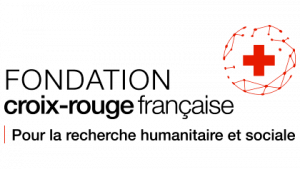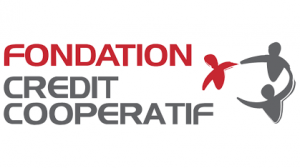Postdoctoral fellowships "SSE and migrations"
The French Red Cross Foundation has decided to join forces with the Fondation Crédit Coopératif to launch a call for applications for two postdoctoral fellowships on the place and impact of social and solidarity economy action in the management of the European migration crisis. The Fondation Crédit Coopératif actively supports research on and for the social and solidarity economy (SSE), with the aim of creating a bridge between the fruits of research in the social sciences and humanities and the practices of SSE actors.
Research Themes
In the context of the current “migration crisis” in Europe, many social needs of populations in exile are currently being addressed by actors from the “social and solidarity economy”. This sector includes a number of organisations which, regardless of their form (social entrepreneurship, cooperatives, associations, citizen collectives…), are based on the common values and principles of social utility, cooperation, and a community basis adapted to the needs of each area and its inhabitants. They lead activities which aim to conciliate solidarity, the sharing of economic performances and social utility for an economy that is respectful of mankind and its environment. The insufficient nature of public responses, that are limited to “the logic of accommodation” and to transitional emergency solutions, has led to extremely precarious situations, areas of relegation and poverty and the emergence of a multitude of needs (housing, food, healthcare, education, employment, etc.) that initiatives by actors from the social and solidarity economy are striving to meet in the migrant context.
These initiatives, which aim to alleviate this “crisis of reception” for refugees, reveal the intrinsic strengths of a sector that is capable of experimenting with new forms of organisation to better involve beneficiaries and make them actors of aid. As flexible projects, they can enable migrants in search of work to become entrepreneurs, to carry projects to alleviate the suffering of this population (Meltingcoop, Manufacture coopérative…). The ESS’s capacities to adapt to this complex social issue can also be seen in the redefinition of the mandate that some organisations, which were not initially specialised in the management of humanitarian or migratory issues, have taken on in order to better help people in exile in areas such as education, housing or culture. New dynamics of collaboration between different activity sectors make it possible to provide a holistic and transversal response to the needs of migrant people, and to guarantee economic, social and cultural integration. Finally, the ESS is a space that is conducive to the expression and development of citizen initiatives and new forms of collective mobilisation, both within and outside of the associative context (Forum Réfugiés, ASTI, APICED, ADEM, Auberge des migrants…). Many citizens, incensed by the dramatic humanitarian situation of these people in exile, and dissatisfied with the state’s responses, have formed mobilisation movements, which have taken very different forms and dynamics, in order to act in their favour.
The SSE is a significant economic force in France, where it represents 10% of the GDP, nearly 12.7% of private employment, and includes around 200 000 companies and organisations and 2.38 million employees (ADDES). However, in spite of these initiatives, the role and usefulness of SSE in the field of migration remains insufficiently recognised overall. Still little studied, there is a lack of perspective on the importance of the action of this sector in this area, namely with regard to indicators capable of measuring public and social costs that could be avoided, given that the reception of migrant workers, which remains a mission primarily incumbent on the state, suffers from a lack of resources. The potential of certain models, such as cooperative entrepreneurship for and by migrants, is often limited by acculturation difficulties (different connotation to entrepreneurship in the countries of origin, need to explain fiscal rules, French administration, etc.). Added to this are the difficulties of capitalisation, spin-offs and dissemination of the good practices of ESS actors, within its ecosystem and with regard to public actors, which limit attempts to scale up initiatives.
What are the backgrounds and profiles of these new arrivals? What difficulties do they present for SSE actors, especially in terms of professional integration (equivalents of qualifications, occupational integration, recognition of diplomas, languages, cultures, etc.)? More generally, what are the unmet or partially met needs, the difficulties encountered, the fields and sectors in which the SSE must act and innovate in order to efficiently tackle issues linked to migration?
How are the crisis, the migrants, and the migratory phenomenon itself perceived by SSE organisations? Moreover, how does this crisis impact on the mandate, governance and activities of SSE actors who wish to adapt themselves to this specific issue in order to provide an appropriate response?
Which role and place do SSE organisations hold in France today in the management of issues linked to the migration crisis? What actions are led, in which sectors, and with which results for the populations concerned? For the collective, which economic and social “costs” are avoided thanks to the action of SSE organisations? How do these actions take the place of inexistent or insufficient public initiatives?
How can we develop an awareness and capitalisation of the organisational and technical innovations and economic models implemented in the SSE sector in order to respond to migration crises, and therefore foster the scaling up and dissemination of new and efficient solutions? In this way, which collaborations between SSE actors and territorial actors (local public authorities, businesses, social housing departments) are implemented, and how efficient are they?
Geographical Research Area
These themes can be addressed in mainland France.
The target country represents an empirical starting-point for research. It does not refer to nationality criteria for eligibility.
Key dates
- 6 February 2019: Launch of the call
- 21 March: Deadline for preregistration
- 18 April: Deadline for application
- 20 June: Results are announced
- 1 Sept. 2019: Start of research
- 1 Sept. 2020: Work delivered

